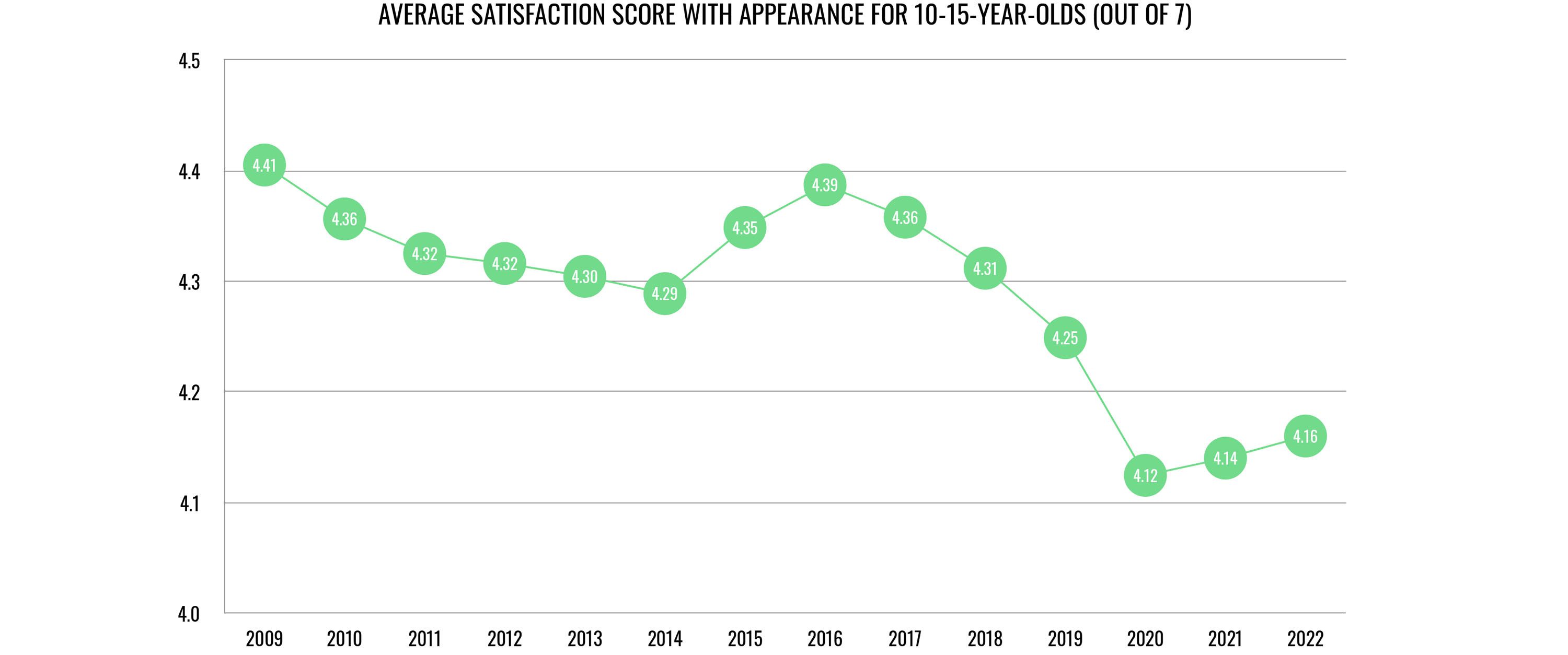
When they're asked about different aspects of their lives, like family, friends, school, and schoolwork, appearance is the one that gets the biggest thumbs-down. About 1 in 7 young people are saying they're not too happy with how they look, and that's a jump from 1 in 10 in 2010 (the year Instagram was first released).
Lots of young people attribute this to their constant exposure to idealised bodies online, through influencers, adverts and filters. Just listen to what Joni, who's 17, had to say: "I hate them [selfies]. They’ve caught on so much with everyone. Endless photos of girls with duck faces in soft-lensing. The whole world looks like a bad seventies porn film again. And the weird thing is they never look like the actual person."1There is a clear gender dimension to this one. Over the 10+ years this data has been collected, boys have been significantly happier with their appearance than girls. But over the last few years, that gap has begun to narrow – with more boys expressing dissatisfaction with how they look. The pandemic may have played a part too. An Ofcom report in August 2020 pointed out that engaging in body-conscious exercise stuff on social media was putting some serious pressure on young people.2 The online world sure has a way of messing with our self-image.
Chart data source:
https://www.understandingsociety.ac.uk/documentation/mainstage/variables/yphap/
- 1 Chloe Combi, Generation Z: Their Voices, Their Lives (London: Penguin, Random House, 2015).
- 2 https://www.ofcom.org.uk/__data/assets/pdf_file/0025/255850/childrens-media-lives-2023-summary-report.pdf